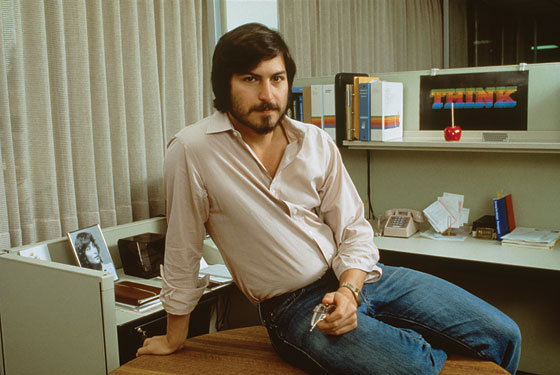From a 1981 Inc. article by Steve Ditlea that covered Apple Computers’ decision to disappear the typewriter from its desks and make space for the “office of the future”:
“Apple Computer Inc. practices what it preaches. Without fanfare, the firm has inaugurated the workplace of the future by putting its personal computers on most of its employees’ desks. The company almost eliminated typewriters, abolished the job title of secretary, and instituted a more efficient and pleasant work environment.
In a memo circulated last year, then-president Mike Scott ushered in a new age in office procedures. ‘EFFECTIVE IMMEDIATELY!! NO MORE TYPEWRITERS ARE TO BE PURCHASED, LEASED, etc., etc. Apple is an innovative company. We must believe and lead in all areas. If word processing is so neat, then let’s all use it! Goal: by 1-1-81, NO typewriters at Apple… We believe the typewriter is obsolete. Let’s prove it inside before we try and convince our customers.’
Combined with conventional data processing run on a Digital Equipment Corp. minicomputer system, the result is what one executive calls ‘the most computerized company in the world,’ a revolutionary development even by the high-tech standards of California’s Santa Clara County (a.k.a. Silicon Valley).
There are now no more than 20 typewriters left in the 2,200 employee firm. Instead of typewriters, the several hundred employees involved in composing or disseminating letters, memos, documents, or reports use a typewritersized Apple II with built-in keyboard, a pair of add-on disk drives, a video monitor, and Apple Writer, the company’s own disk-stored word processing software. Word processing has gained a foothold in many businesses, but never before has a firm so completely done away with typewriters by executive fiat. …
The Apple way is best exemplified by chairman of the board and co-founder Steve Jobs, a dark-haired 26-year-old, who in grey workshirt and slacks this particular morning could easily be mistaken for a maintenance worker. Instead he’s the holder of the largest single block of Apple stock, some 7.5 million shares worth about $163 million at recent market prices.
When Steve Jobs speaks, it is with the ‘gee-whiz’ enthusiasm of someone who sees the future and is making sure it works. He explains the decision to put an Apple computer on every desk as part of an overall desire to institute a more humane workplace. ‘Not only do our area associates have the freedom to do more rewarding, enriching tasks, they have the chance to get involved in solving problems that can ultimately affect the success of the entire company.’
As for worker fears that office automation may lead to greater unemployment, he insists the opposite is true, with personal computers opening up jobs for Apple employees.”
______________________________________________
In 1967, Walter Cronkite imagined the remote office of the future:
Tags: Mike Scott, Steve Ditlea, Steve Jobs

